A cookie is information stored on your computer for use by the website and your browser. Cookies are used to keep track of where you have navigated within the CRAB website so that you can navigate seamlessly. Cookies enable your browser to maintain a persistent connection and to “remember” where backward and forward navigation is intended to take you within the pages of the site. No personally identifiable information (e-mail address, name, etc.) is collected with the cookies that we set. Accepting cookies while on the CRAB site will not put you at risk for marketing from other sites. See the "Help" section of your particular browser for more information on working with cookies.
Please see our privacy policy for more information.
